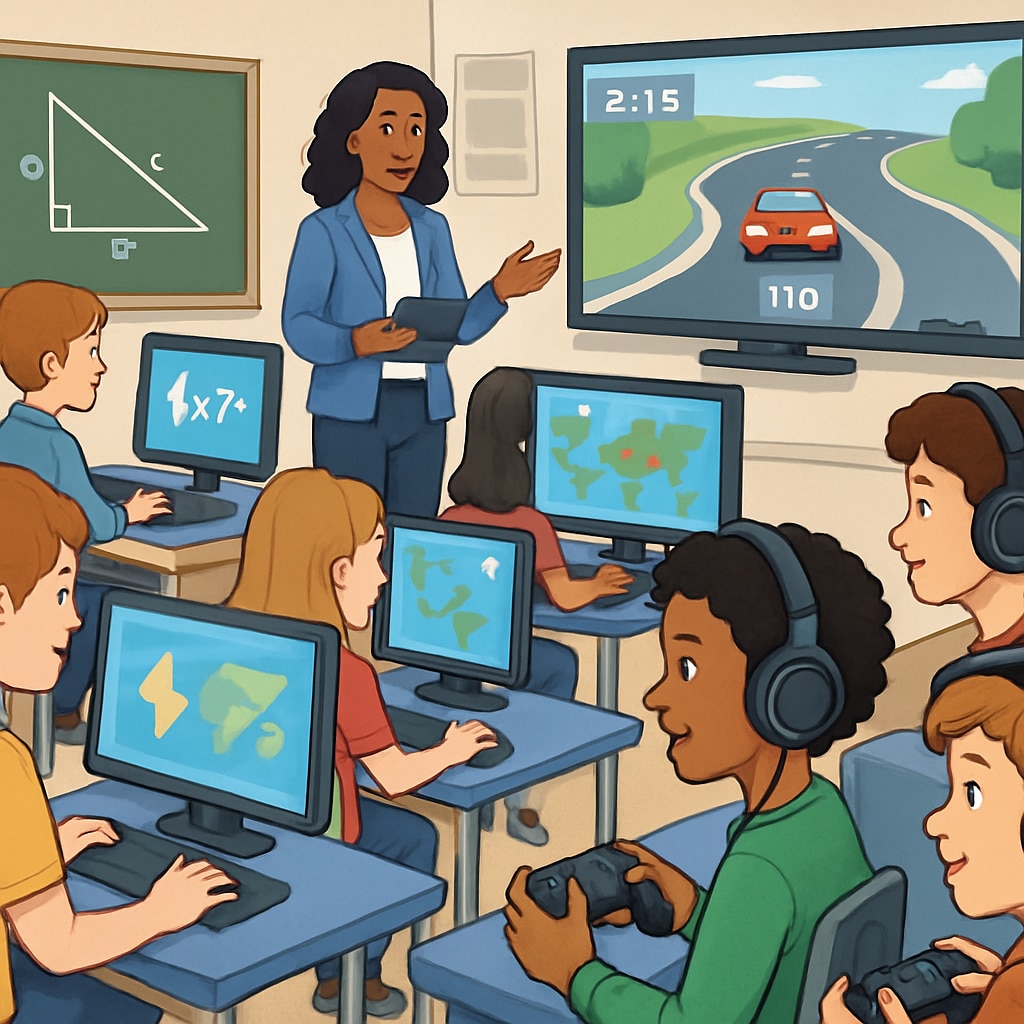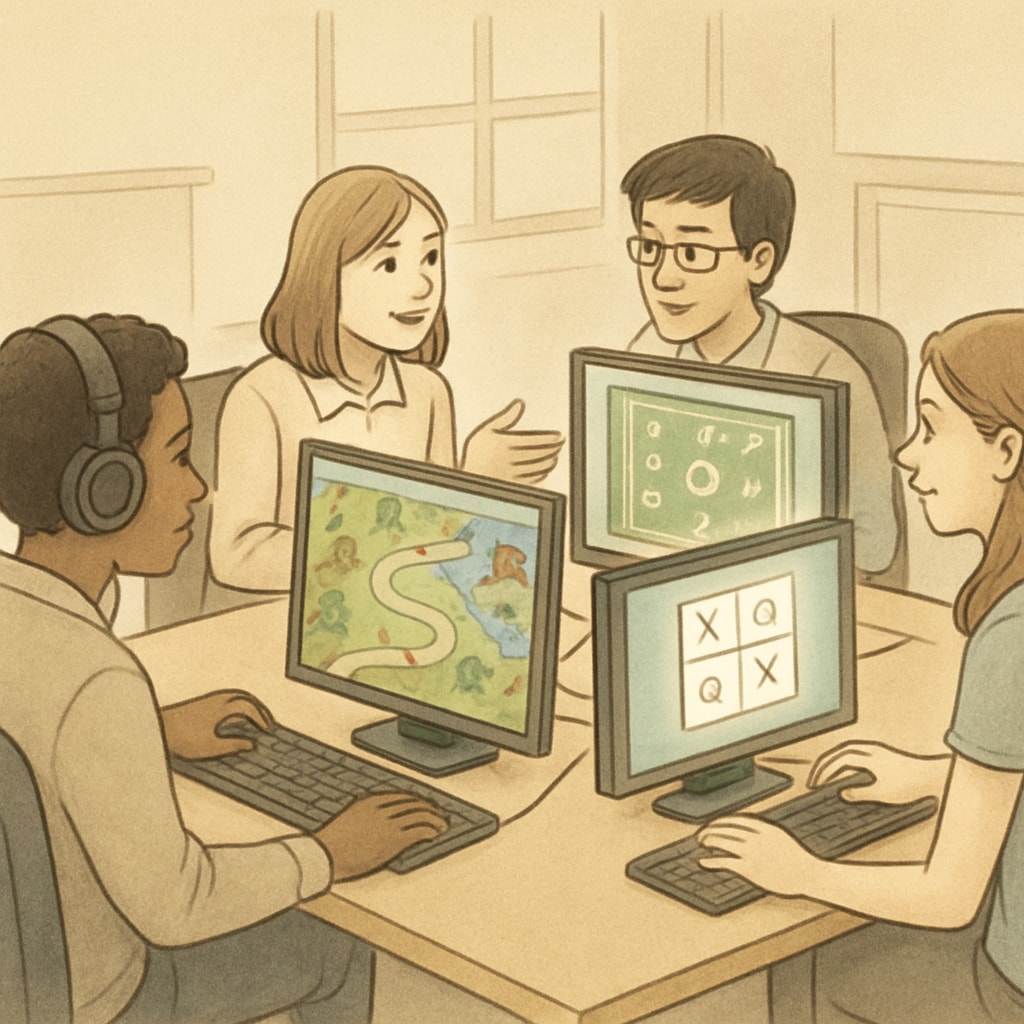Esports education, game-based learning, and strategic partnerships are no longer futuristic concepts; they are shaping the reality of K12 education today. The groundbreaking collaboration between GameClass and the North America Scholastic Esports Federation (NASEF) is a prime example of this transformation. By integrating game-based learning into over 9,000 esports clubs worldwide, they aim to bridge the gap between core academic subjects and the dynamic, engaging world of video games. This innovative approach is not just about entertainment—it’s about creating a comprehensive educational ecosystem that inspires the next generation of learners.

Esports as a Vehicle for Educational Innovation
Esports, or competitive video gaming, has grown into a multi-billion-dollar industry. However, its potential extends far beyond the professional gaming arena. Educational institutions are now recognizing esports as a powerful tool to engage students and teach them valuable skills. From critical thinking to teamwork, esports offers opportunities for holistic development.
In the case of GameClass and NASEF, their strategic partnership focuses on intertwining esports with traditional education. By doing so, they seek to address two critical challenges in modern education: student engagement and skill development. For instance, students participating in esports programs often exhibit improved problem-solving abilities, better communication skills, and increased motivation to learn.
Moreover, esports programs are designed to align with academic standards. For example, students might analyze data from a game to understand statistical principles or design a game strategy that incorporates principles of physics. This alignment ensures that gaming becomes a legitimate educational tool rather than a mere extracurricular activity.
Game-Based Learning: A New Paradigm in K12 Education
Game-based learning is not a new concept, but its application in K12 education has gained significant momentum in recent years. This approach leverages the interactive and immersive qualities of games to teach academic content. When combined with esports, game-based learning becomes even more impactful, offering students an engaging way to tackle complex subjects.
For example, imagine a history lesson where students reenact historical events through a strategy game, or a math class where they solve equations to unlock levels in a puzzle game. These methods not only make learning enjoyable but also enhance retention and understanding.
The partnership between GameClass and NASEF exemplifies how game-based learning can be scaled to benefit thousands of students. By creating esports clubs in schools, they provide a structured environment where students can learn, compete, and grow. These clubs are more than gaming hubs—they are learning communities where students collaborate, innovate, and develop a wide range of skills.

The Role of Strategic Partnerships in Scaling Innovation
Strategic partnerships like the one between GameClass and NASEF play a crucial role in bringing innovative ideas to life. By pooling resources, expertise, and networks, these organizations can implement large-scale changes that individual schools or educators might struggle to achieve independently.
For instance, GameClass provides the technological infrastructure and curriculum design expertise, while NASEF brings its extensive network of schools and esports professionals. Together, they can create a robust educational framework that integrates esports into the curriculum seamlessly.
In addition to fostering academic excellence, this partnership also addresses the social and emotional needs of students. Esports clubs often become safe spaces where students feel a sense of belonging and community. This is particularly important in today’s educational landscape, where student well-being is a top priority.
The Future of Esports in Education
The integration of esports and education is still in its early stages, but the potential is enormous. As more schools embrace this model, we can expect to see a shift in how education is delivered. Traditional classrooms may evolve into interactive learning hubs, where games and technology play a central role in teaching and learning.
Moreover, the skills students gain through esports—such as leadership, resilience, and adaptability—are highly relevant in the 21st-century workforce. By incorporating these programs into K12 education, we are not just preparing students for exams but equipping them with the tools they need to thrive in a rapidly changing world.
In conclusion, the partnership between GameClass and NASEF is a testament to the power of innovation and collaboration. By combining esports, game-based learning, and strategic partnerships, they are paving the way for a new era in education—one that is engaging, inclusive, and future-ready.
Readability guidance: This article uses concise paragraphs, includes transition words for better flow, and balances technical details with accessible language. Lists and examples are used to clarify complex ideas.


